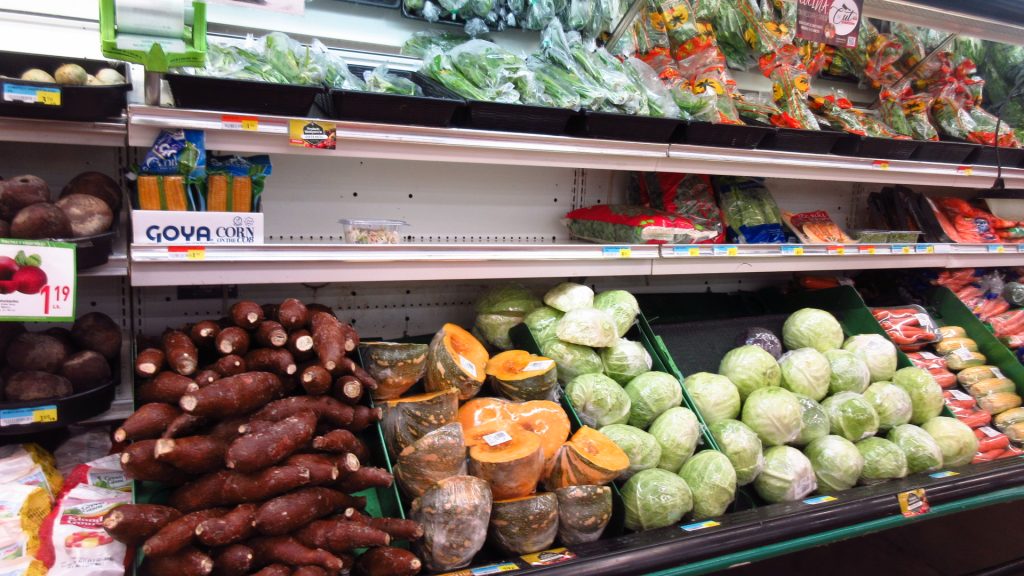
In a Puerto Rican Grocery Store
Puerto Rico grocery shopping. Some people had asked me if there is much of a difference shopping in Puerto Rico than in the states. I would say yes and no. Here are some of the similarities and differences
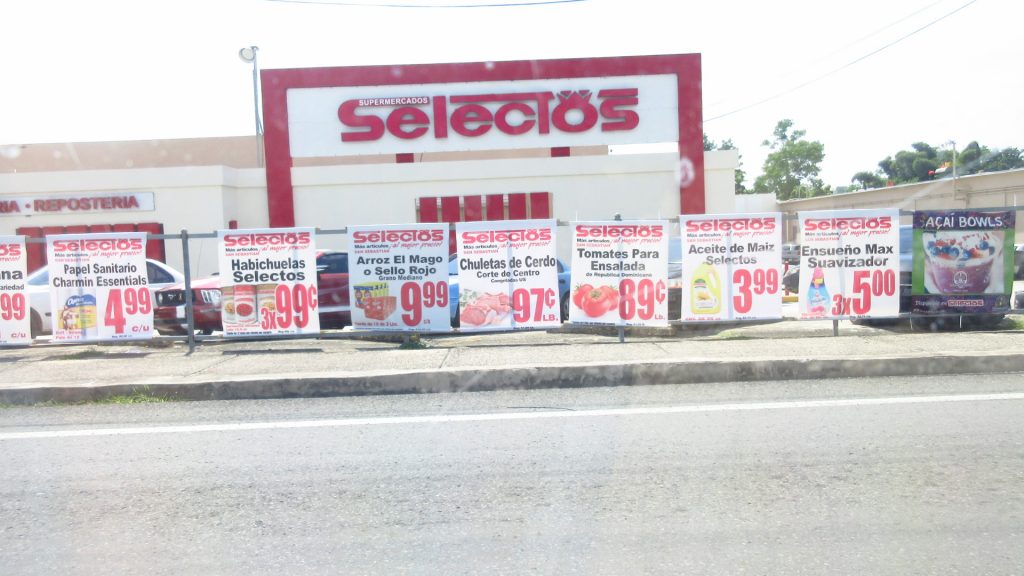
One of the chains on the island. There’s also Econo, Mr. Special and Pueblo among a few others
Price: In Puerto Rico, food is pretty expensive, especially some items like dairy products and specialty items that need to have extra care to ship like produce (strawberries for instance). Other foods, though, are pretty cheap like rice and beans which is a favorite and staple in the Puerto Rican diet/cuisine. Many people in Puerto Rico use a La Familia food stamp card that you may notice when checking out. And often you will be asked about the “metodo de pago” or method of payment. To respond you can say “cash/efectivo” “targeta” (card) “ATH” (debit) or “Familia’. Food (usually) has a lower tax rate than other non-food items.
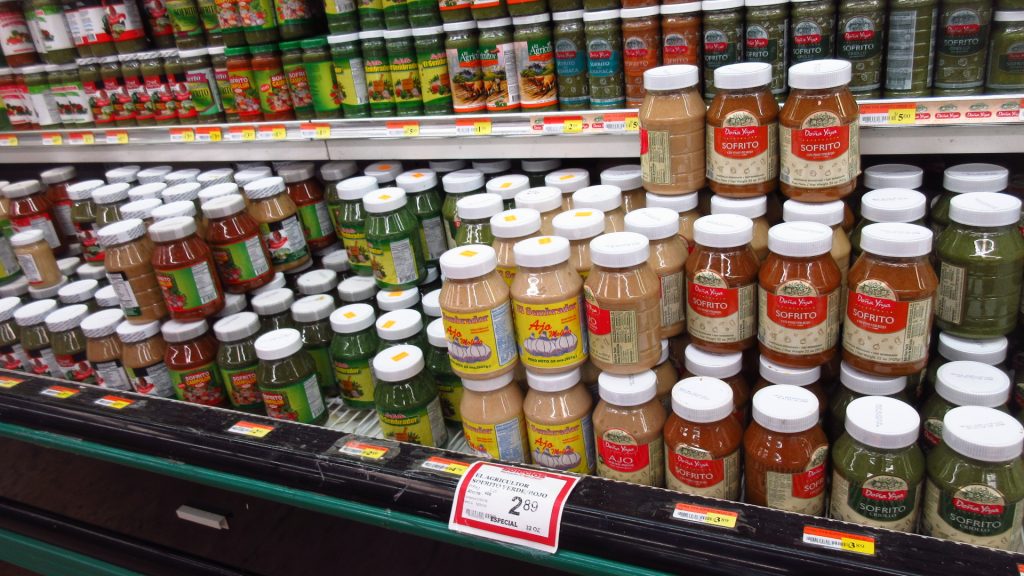
Sofrito! Most people have a receta casera (home recipe) but in a pinch store-bought will do
Types of Foods: Generally speaking you can find almost everything you would expect to find in the states, but the vast variety is lacking (except soda crackers; there are SOOO many saltines!). For instance, you can find Trisquits, but you won’t find Spicy Herb and Cheese Trisquits (I don’t even know if that’s a thing, but you get my point). Organic and “fine” or fancy foods are pretty hard to come by, so if you are a foody or vegetarian you will quickly learn the tiny hubs of these places (for instance Fresh Mart in Aguadilla, Natural Food Center in Mayaguez and the food section in any Marshalls believe it or not). There are of course a lot of Puerto Rican cuisine foods in the grocery stores. These include things like bacalao (salted/preserved cod fish), lots of tomato sauce, rice, beans, calabaza (Puerto Rican pumpkin), recao and cilantro, sofrito, sazon, plantains, ñame, canned meats, Malta, Medalla, Puerto Rican coffee (mmm que rico!) pique, and many other things.
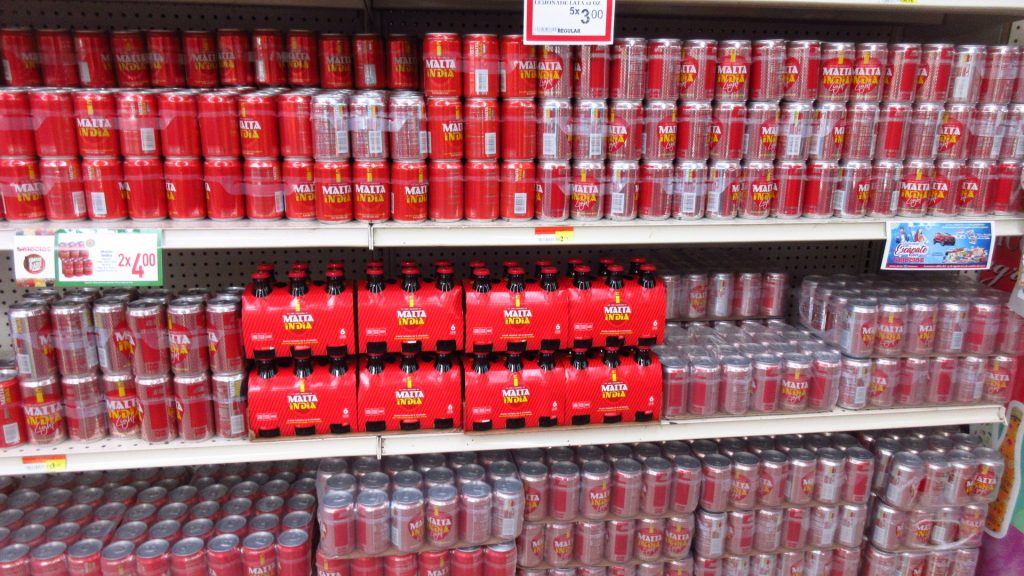
Malta is an interesting non-alcoholic malt beverage. It is very sweet and carbonated. Basically a soda
Many things in the Puerto Rican diet have evolved throughout time having to deal with hurricanes and lack of refrigeration like Ultra High Pasteurized box milk and many canned/dried goods. Because of that sometimes people get the impression that fresh food is not prized. Actually au contraire! There is a deep love for the IDEA of the jibaro slaving out in the hot tropical sun to bring fresh food from the campo. (Not that many still want to BE one, though that is changing a little with the food revolution on the island.) But much of THAT food is found at the small fruit tents, pulgueros/farmer’s markets and just randomly stopped trucks or cars with their trunks open filled to the brim with avocados, pineapples, bananas, plantains, breadfruit and more.
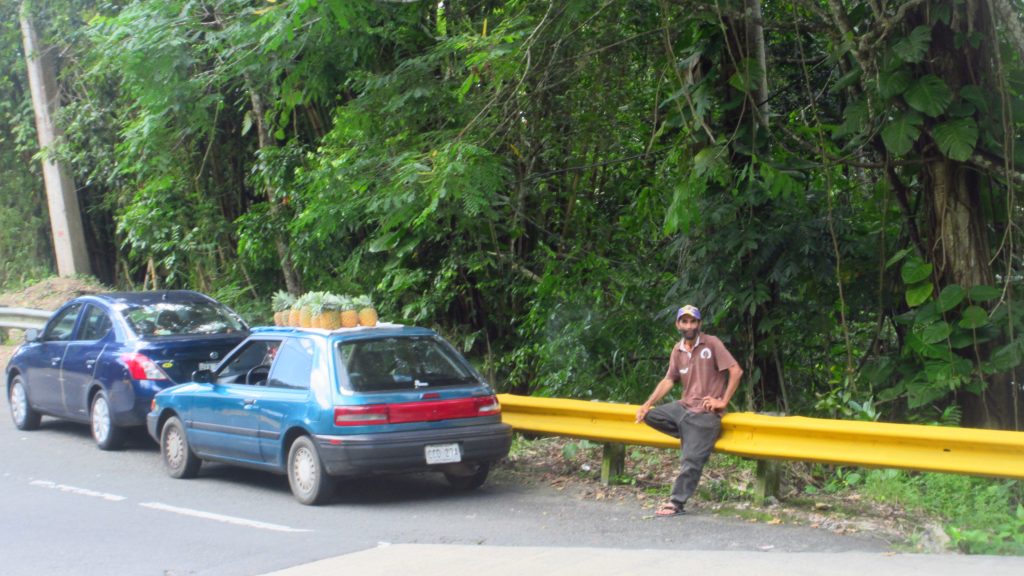
Get your groceries wherever you can find them! Pineapple man
Overall, though, grocery shopping in general is pretty much the same at you might find in the states. It’s a large warehouse with aisles labeled in Spanish. The periphery generally has the produce and cold items and the center has the more shelf-stable things. You can buy any type of alcohol and tobacco there, although the alcohol is sometimes behind a plexiglass wall and the tobacco nearly always is.
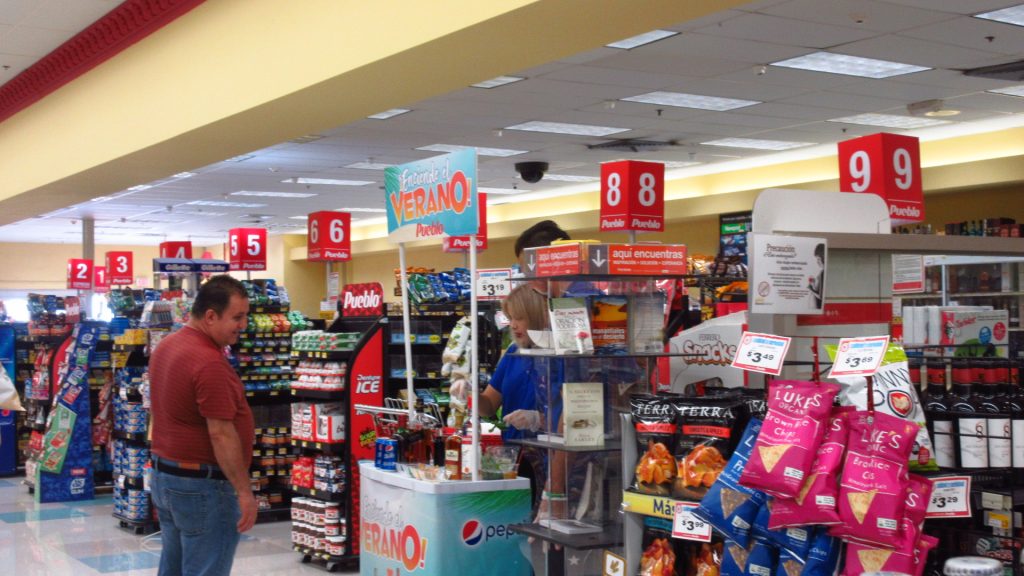
Full size “samples” of rum drinks in Pueblo grocery store
Sometimes there will be taste testings, especially with alcohol which doesn’t mean a sample, but usually a full serving of a drink or glass of wine! The music played inside is generally, but not always Puerto Rican current pop or old salsa music. Sometimes there are ATMs inside. I have never seen people “couponing” with the cut out coupons that they have in the states, at least not in any store I’ve ever been to. The sales advertisement/insert is often found at the front of the store near the carts/baskets and is called a “shopper” (pronounced “choper”). Sometimes there is a cafeteria or deli to eat a hot meal.
I haven’t seen self check out at the grocery stores and some are even so old school they don’t have bar codes (small mom and pop colmados mostly) and have to type in the price. Most will accept any form of money, but it’s good to always have cash just in case the machines aren’t working. People are friendly while shopping and will often comment or make small talk while reaching for things. Lines (filas) can sometimes be long especially on the weekends, so we avoid shopping then even though everyone is very nice and polite while waiting.
One big difference is that for a few years now, there is a law that prohibits the single use plastic bags. So you either need to bring your own bags (or boxes, coolers, etc) or they will sell you a canvas one for about a $1 or a thicker plastic bag (that is intended to be re-used) for about ten cents. Also, if you are not going straight home from the grocery store (and even if you are) you should always bring a cooler in your car to keep cold things cold. Neveritas (portable coolers) are an all-time must item while living in Puerto Rico!
That’s about all I can think of regarding grocery shopping in Puerto Rico. Let me know if I missed anything and can try to answer it! Here’s a short video while out shopping!

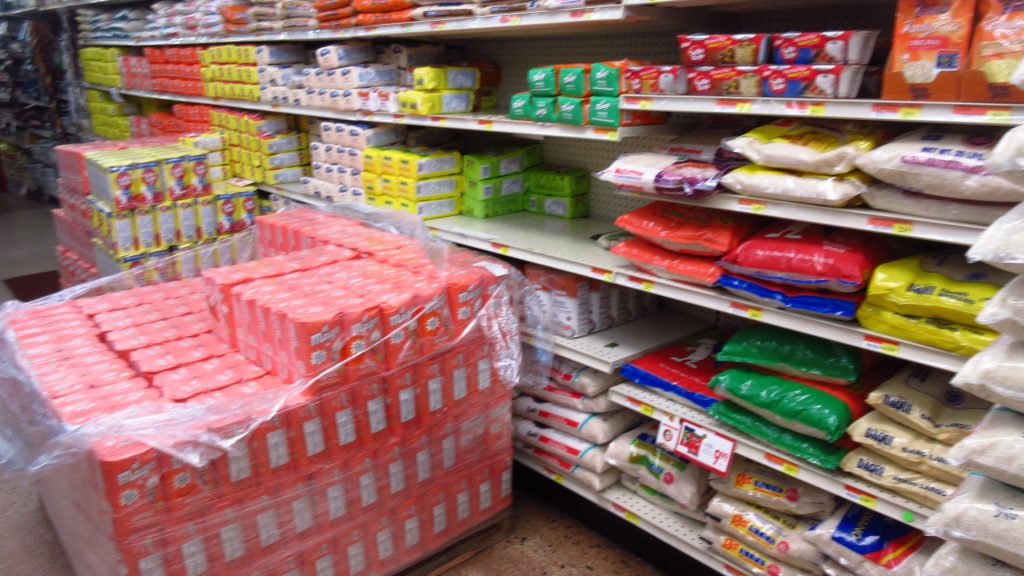
Good article.
I would just mention:
1. There is an organic/health food section in Econo.
2. The coffee in Econo is really good, unlike in U.S. supermarkets.
3. Unfortunately, much of the produce is imported but that may be changing.
4. Check the date on the eggs as they often come from the States and are months old. Much better to buy them at the farmers’ market.
5. It’s hard to find pasture-raised meat and chicken although there is a good chicken brand, Springer, at Pueblo.
6. Milk is more expensive, but it is excellent local milk.
7. Sometimes it’s difficult to find canned tomatoes, but they do have them at Edward’s.